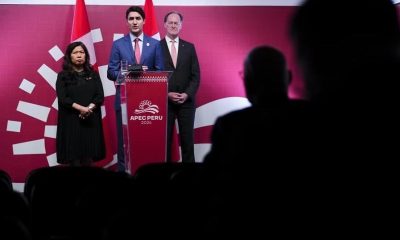Air Canada announced that it invested in Heart Aerospace, an electric airplane startup, and it is ordering 30 units of a new version of its first electric aircraft.
Heart Aerospace
Battery technology has improved enough that short-range commercial planes are starting to make sense.
Several startups are working on viable electric aircraft, and some are starting to get the attention of major airlines.
Heart Aerospace is one of those startups.
We reported on the Sweden-based startup last year when it made a splash by unveiling the ES-19, a 19-seat electric aircraft meant for short flights. The ES-19 was meant to have up to 250 miles (400 km) of range, but the range is commercially viable for short-range flights with 19 passengers.
When unveiling the aircraft last year, Heart Aerospace also announced that it secured investments from important partners: United Airlines Ventures (UAV), Breakthrough Energy Ventures, which is Bill Gates’s investment vehicle, and Mesa Airlines.

At the time, United and Mesa announced that they have placed an order for 100 ES-19 electric planes and that they had an option for 100 more.
A new aircraft
Now a year later, Heart Aerospace has decided to replace the ES-19 with the new ES-30, a 30-passenger electric aircraft.
The company announced in a press release:
The new airplane design, called the ES-30, is a regional electric airplane with a capacity of 30 passengers and it replaces the company’s earlier 19-seat design, the ES-19. It is driven by electric motors powered by batteries, which allows the airplane to operate with zero emissions and low noise.
The change appears to be driven by Heart’s airline partners who are all already saying that they are updating their orders to the new version of the plane.

Heart Aerospace elaborated on the inside configuration of the new ES-30:
The ES-30 has a comfortable three-abreast flat-floor cabin seating and it features a galley and a lavatory. Cabin stowage and overhead bins will add to the large external baggage and cargo compartment and provide airlines with network flexibility.
The company is attached to battery technology. When it came out of stealth mode last year, it believed that battery technology would enable them to have a commercially viable all-electric aircraft for 19 passengers with 250 miles (400 km) of range by 2026.
Now the larger 30-passenger aircraft will have a much shorter all-electric range of 125 miles (200 km), but it will have a reserve-hybrid configuration, consisting of two turbo generators, to get the original 250 miles (400 km) range and the reserve energy requirements.
Reserve-Hybrid Turbogenerators are a new technology developed by companies including Honeywell and Rolls Royce that enable aircraft to have electric propulsion powered by jet fuel.
Heart Aerospace still aims for its aircraft to be mostly battery-powered and expects the range to improve with battery technology.
The new aircraft is now planned for commercial flights in 2028.
New partners
Along with the new ES-30 replacing the E19, Heart Aerospace announced that it secured other new important partners in its project.
Air Canada and Saab have each invested US $5 million in Heart Aerospace.
Michael Rousseau, president and chief executive of Air Canada, commented on the announcement:
Air Canada is very pleased to partner with Heart Aerospace on the development of this revolutionary aircraft. We have been working hard with much success to reduce our footprint, but we know that meeting our net-zero emissions goals will require new technology such as the ES-30. We have every confidence that the team at Heart Aerospace has the expertise to deliver on the ES-30’s promise of a cleaner and greener aviation future.
In addition to its investment, Air Canada has also placed a purchase order for 30 ES-30 aircraft.
The company now confirmed that on top of United and Air Canada, Nordic airlines Braathens Regional Airlines (BRA), Icelandair, SAS, and New Zealand’s Sounds Air have all placed orders for its electric aircraft.
Subscribe to Electrek on YouTube for exclusive videos and subscribe to the podcast.

























